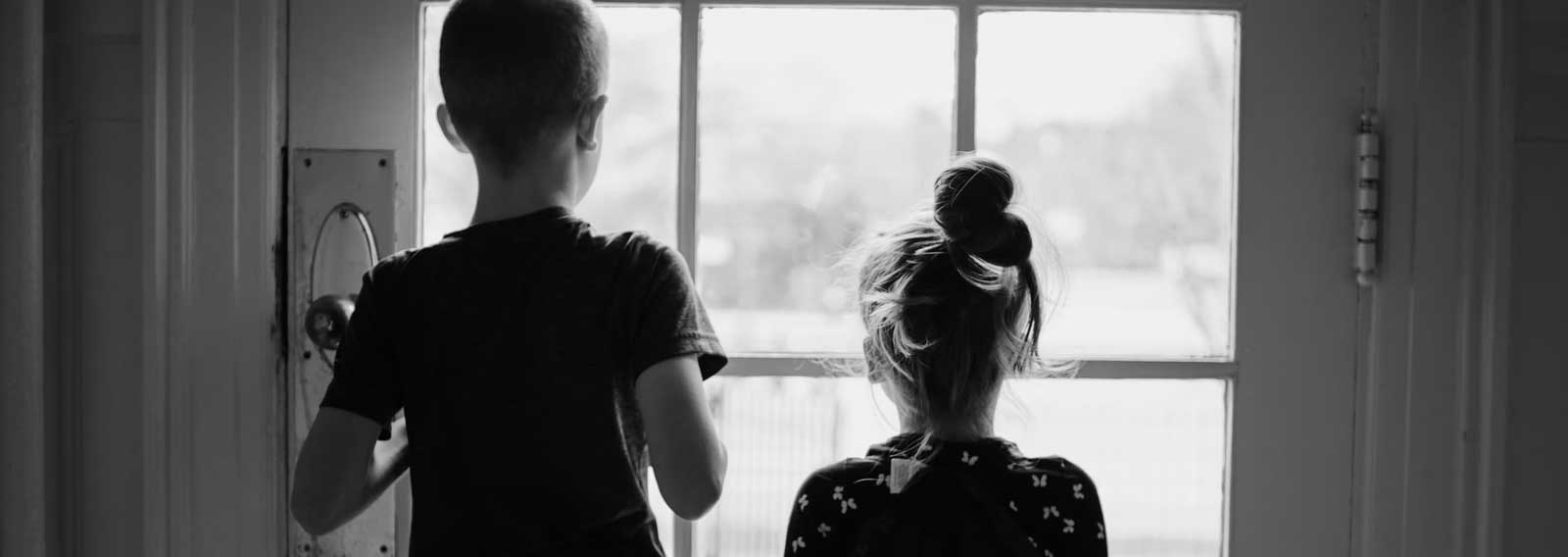Sadly, Christians have not been immune from getting things so very wrong when it comes to this virus that is now upon us, and how various governments have sought to deal with it. Their misuse and abuse of Scripture have been far too common. More on this in a moment.
Too often the advice of the health bureaucrats has been wrong as well. As I have documented, much of this medical advice has been made up as they went along, often contradicting that of others, or even themselves. There has been little rhyme or reason to it, and so often it seems to have just been pulled out of a hat. It seems to be all about politicised medicine.
One of the massive blunders has been the hardcore and over-the-top lockdown measures. They have actually caused more harm than good, and many reports and studies have shown just how damaging and counterproductive they have been.
A big part of this involves quarantine strategies. In the past, it was seen as sensible medical care to quarantine the sick – those with infectious diseases – in order to keep them from spreading their illnesses and diseases. But with Covid, we have effectively quarantined everyone – the sick AND the healthy. With entire cities and states locked down, this has been a disastrous policy by so many measures.
As three Australian authorities put it in a very important new book, The Great Covid Panic:
Lockdowns essentially targeted the wrong people; namely, the healthy working population that hardly got sick from Covid and thus were also a small part of the story of infections. Those who were the likeliest both to get sick and to spread it to others were old people. They had pressing reasons to be in all the wrong places. Other illnesses forced them to get help in hospitals or at doctors’ offices, or within their nursing homes. All three of these places in most Western countries are almost designed to be Covid distribution centres. They are large, indoors and mix together the easily-infected with the already-infected who are shedding masses of the virus. Moreover, having been shut inside their homes with little exercise and social interaction to improve their immune systems, the elderly became much more vulnerable over time because their health deteriorated.
Reducing the movements of healthy people was not going to move the needle in terms of stifling virus transmission among the truly vulnerable elements of the population. Worse, the logic of trying to keep movement limited meant there was almost no escape for governments from doing the wrong thing: once they and their health advisors had convinced the population that normal interactions were a serious risk, every move to ‘open up’ was seen as potential endangerment that could be exploited by political opponents.
The Great Covid Panic: What Happened, Why, and What To Do Next by Foster, Gigi (Author), Frijters, Paul (Author), Baker, Michael (Author)
I hope to soon do a review of this very significant new volume, but as mentioned, here I mainly want to focus on how so many Christians simply get it wrong when it comes to appealing to the Bible to defend our lockdowns and one-size-fits-all quarantines.
Worse yet, they actually defend the notion that churches should be closed to all but the vaccinated. They really believe that the unvaxxed are unclean and impure, and should be kept far away from churches. How many times have I heard these Christians claim, ‘Yeah, but it’s in the Bible’?
Have they actually even bothered to read their Bibles? Can they provide a chapter and verse on this? Well, I can, and as we will see, the Old Testament cases of quarantine have very little in common with our way of doing things. Before running with the main passages on this, let me put things into a biblical context.
In the Pentateuch, we find various laws on cleanliness, purity, holiness, and the like. In the book of Leviticus, we find a number of chapters dealing with this. Here are some of them:
Leviticus 11 Clean and unclean animals.
Leviticus 12 Purification after childbirth.
Leviticus 13-14 Laws about lepers and leprosy.
Leviticus 15:1-32 Laws about bodily discharges.
Leviticus 17–26 The “Holiness Code”.
Leviticus 21:1-24 Holiness and the Priests.
Leviticus 20:22-26 You shall be holy.
That last text – a more generic one – says this:
You shall therefore keep all my statutes and all my rules and do them, that the land where I am bringing you to live may not vomit you out. And you shall not walk in the customs of the nation that I am driving out before you, for they did all these things, and therefore I detested them. But I have said to you, ‘You shall inherit their land, and I will give it to you to possess, a land flowing with milk and honey.’ I am the Lord your God, who has separated you from the peoples. You shall therefore separate the clean beast from the unclean, and the unclean bird from the clean. You shall not make yourselves detestable by beast or by bird or by anything with which the ground crawls, which I have set apart for you to hold unclean. You shall be holy to me, for I the Lord am holy and have separated you from the peoples, that you should be mine.
And here are some of the key passages that speak about the quarantine of the infectious:
Leviticus 13:4-5 But if the spot is white in the skin of his body and appears no deeper than the skin, and the hair in it has not turned white, the priest shall shut up the diseased person for seven days. And the priest shall examine him on the seventh day, and if in his eyes the disease is checked and the disease has not spread in the skin, then the priest shall shut him up for another seven days.
Leviticus 13:45-46 “The leprous person who has the disease shall wear torn clothes and let the hair of his head hang loose, and he shall cover his upper lip and cry out, ‘Unclean, unclean.’ He shall remain unclean as long as he has the disease. He is unclean. He shall live alone. His dwelling shall be outside the camp.
Leviticus 14:7-9 And he shall sprinkle it seven times on him who is to be cleansed of the leprous disease. Then he shall pronounce him clean and shall let the living bird go into the open field. And he who is to be cleansed shall wash his clothes and shave off all his hair and bathe himself in water, and he shall be clean. And after that he may come into the camp, but live outside his tent seven days. And on the seventh day he shall shave off all his hair from his head, his beard, and his eyebrows. He shall shave off all his hair, and then he shall wash his clothes and bathe his body in water, and he shall be clean.
Numbers 5:1-4 The Lord spoke to Moses, saying, “Command the people of Israel that they put out of the camp everyone who is leprous or has a discharge and everyone who is unclean through contact with the dead. You shall put out both male and female, putting them outside the camp, that they may not defile their camp, in the midst of which I dwell.” And the people of Israel did so, and put them outside the camp; as the Lord said to Moses, so the people of Israel did.
2 Kings 7:3 Now there were four men who were lepers at the entrance to the gate. And they said to one another, “Why are we sitting here until we die?
2 Kings 15:5 And the Lord touched the king, so that he was a leper to the day of his death, and he lived in a separate house. And Jotham the king’s son was over the household, governing the people of the land.
There has been plenty of debate as to what the Hebrew term in question is actually referring to. Leprosy is often how this word is translated, and Hansen’s Disease is a more modern term sometimes used. But it might be best to simply translate this as “infectious skin diseases”.
Timothy Ashley, commenting on the Numbers text says this in more general terms about the ritually unclean:
That God is holy is a commonplace assertion of the Pentateuch (e.g., Lev. 11:44-45; 19:2). That which is unclean is the antithesis of that which is holy; it is impure and abnormal for its class. That which is clean is in a middle state; it is pure and normal for its class. That which is holy is made so by sanctification and is fitted for the divine use in the divine presence. Therefore a basic principle is that the holy must not come into contact with the unclean (e.g., Lev. 7:19-21; 22:3). The three disorders named in the present passage all bring about communicable uncleanness. The alternatives are being isolated from the camp where the holy Yahweh dwells or being “cut off.”
And this exclusion did not necessarily mean being totally isolated from others. As Jay Sklar says about the Leviticus 13 passage, to live outside the camp did not mean that they had to live alone.
The Hebrew word badad simply means to be ‘apart from’ a large group, although contact with others who lived ‘apart’ was still possible (cf. Num. 23:9). At the very least, those with a ritually defiling skin disease could live with those suffering from the same affliction (2 Kgs. 7:3; cf. Luke 17:11-19). At the very most, it seems possible that family members or friends could join them, since it was not wrong to become pure in this instance, only to fail to deal with the impurity properly.
Lastly, Allen Ross discusses how Christians today should understand and apply these laws of purification:
The main point of Lev. 13 is to state that people afflicted with disease could not enter the presence of God as they were – nor could anyone ever enter the presence in heaven in such a condition. In the church today no rule prevents people with skin diseases from entering the place of worship, because it is simply an assembly of believers and not the sanctuary with the holy of holies and the actual dwelling of the glory of the LORD. Yet common sense should tell someone with a contagious illness to remain at home or in the hospital. That is the practical side of Leviticus. Nevertheless, the theological understanding behind any illness is that it is part and parcel of the fallen condition of human life in this world.
Neither is there in the church today any ritual for reentry into the congregation. All such ritual in the Old Testament found its fulfillment in the atoning sacrifice of Jesus Christ, which provides the way for us to enter his heavenly sanctuary free from sin and its effects.
In sum, as should be quite clear from the biblical passages mentioned above, unlike what we find happening today such quarantines were definitely very targeted and proportionate responses. They involved quarantining the sick, not the healthy. A whole city or country was not shut down – the sick were taken away from the healthy for a short period of time until it was determined that the infectious period had passed.
Yet still, some Christians will foolishly say we are being “unloving” and un-Christlike to oppose lockdowns and indiscriminate quarantines. Um, no. What IS unloving and un-Christlike is to foolishly run with a cure that is worse than the disease. It is ignoring the shadow pandemic and all its negative effects, including mental health problems, a generation of traumatised children, self-harm, drug and alcohol abuse, domestic violence, suicides, businesses closed, and entire economies shattered.
Christians of all people should not be lapping up all the panic porn and hysteria, nor should they be uncritically running with the media-run fear narrative. They need to actually view all things carefully, and in light of the actual evidence. And in this case, in the light of Scriptural truth as well.



















